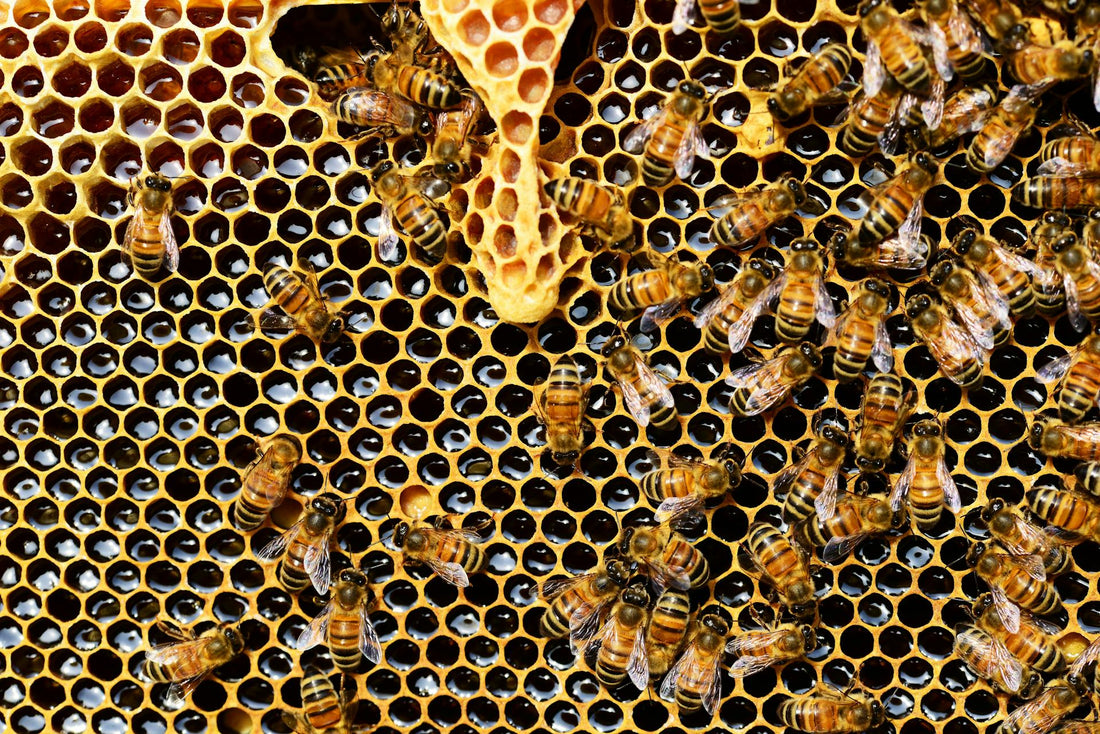Honey bees play an essential role in agriculture, significantly impacting crop yields and the economy. By pollinating a variety of plants, honey bees enhance food production and contribute to the biodiversity of ecosystems. Here’s an in-depth look at the crop and economic benefits of using honey bees.
Crop Benefits of Honey Bees
1. Increased Crop Yields
Honey bees are prolific pollinators, responsible for the successful fertilization of many flowering plants. Crops such as almonds, apples, blueberries, cherries, avocados, and cucumbers rely heavily on bee pollination.
Impact: Studies show that the presence of honey bees can increase the yield of these crops by up to 30% or more. For example, almond trees almost exclusively depend on honey bee pollination, and the presence of bees can enhance their yield and quality significantly.
2. Improved Crop Quality
Pollination by honey bees not only increases the quantity of crops but also improves their quality. Fruits and vegetables pollinated by bees tend to be more uniform in shape and size, and they often have better nutritional profiles.
Impact: Enhanced quality can lead to higher market prices and greater consumer satisfaction, benefiting farmers and consumers alike.
3. Enhanced Biodiversity
Honey bees contribute to the health and diversity of ecosystems by pollinating a wide range of plants. This biodiversity supports the resilience of ecosystems, making them more adaptable to changes and stresses.
Impact: Diverse ecosystems are crucial for sustainable agriculture, ensuring that various plant species can thrive and support different forms of wildlife.
Economic Benefits of Honey Bees
1. Economic Value of Pollination
The economic value of honey bee pollination is immense. In the United States alone, the pollination services provided by honey bees are estimated to be worth over $15 billion annually. This figure encompasses the increased yields and quality of bee-pollinated crops.
Impact: This economic contribution is crucial for the agricultural sector, supporting the livelihoods of farmers and contributing to the overall economy.
2. Support for Agricultural Jobs
Honey bee pollination supports numerous jobs within the agricultural sector. From beekeepers and farmers to workers in processing and distribution, the benefits of bee pollination extend through various levels of the agricultural supply chain.
Impact: This job creation helps sustain rural economies and provides employment opportunities in areas dependent on agriculture.
3. Honey and Byproducts
Beyond pollination, honey bees produce honey, beeswax, propolis, and other valuable byproducts. These products have significant market value and contribute to the income of beekeepers and related industries.
Impact: The sale of honey and other bee products supports beekeepers financially and provides consumers with natural, healthful products.
4. Sustainable Agriculture
The use of honey bees in agriculture promotes sustainable farming practices. By relying on natural pollination, farmers can reduce their dependence on chemical pollinators and fertilizers, leading to more environmentally friendly farming methods.
Impact: Sustainable practices help preserve the environment and ensure the long-term viability of agricultural land.
Conclusion
The utilization of honey bees in agriculture offers substantial crop and economic benefits. By enhancing crop yields and quality, supporting biodiversity, and contributing significantly to the economy, honey bees are indispensable allies for farmers. Moreover, the sustainable practices promoted by bee pollination help ensure a healthier environment and a more resilient agricultural sector. As urban and rural farmers alike recognize these benefits, the importance of protecting and supporting honey bee populations becomes increasingly clear.

